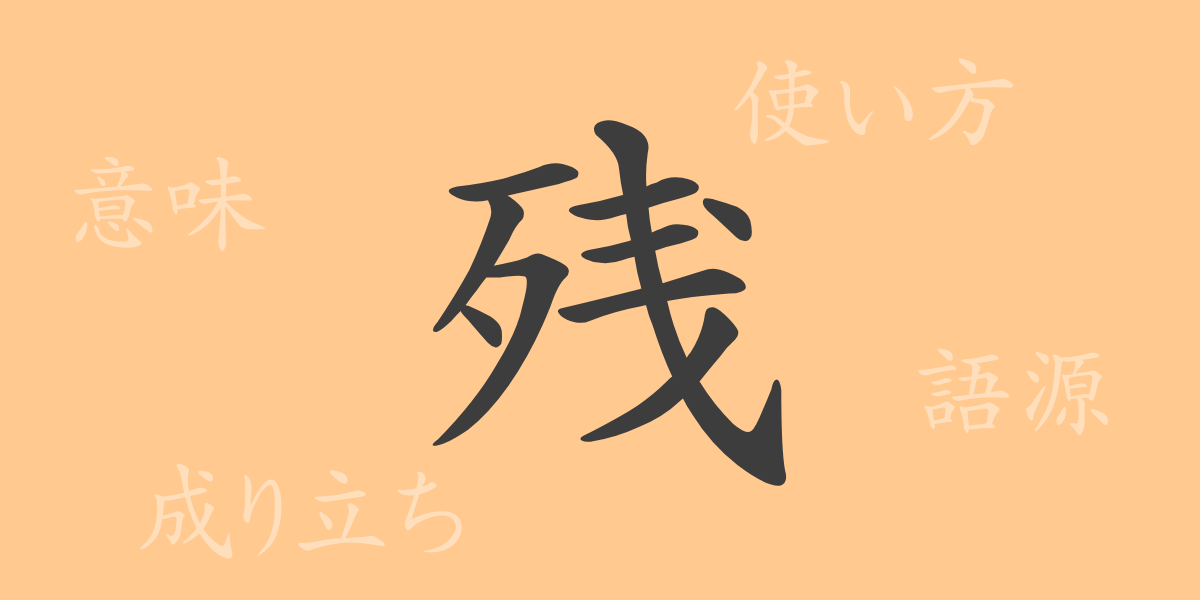Words are mirrors of culture, and among them, kanji uniquely reflect the rich history and philosophy of the East Asian cultural sphere. The commonly used Japanese kanji “残(ざん)” is frequently employed in daily life and helps express a multitude of emotions and situations. In this article, we will delve into the origins, meanings, usage, and expressions involving the kanji “残(ざん).” Let’s explore the depth of this character together.
Origins of 残(ざん)
The kanji “残(ざん)” has evolved from ancient Chinese pictographs. Originally associated with the radical “歹(がい)” which signifies death and misfortune, it conveyed ominous meanings. However, over time, the primary meaning shifted to “残る(のこる)” which means “to remain.” Today, “残(ざん)” encompasses various meanings including those found in words like “残酷(ざんこく)” (cruel).
Meanings and Usage of 残(ざん)
The kanji “残(ざん)” is commonly used as a verb meaning “to remain” or “to leave behind.” It implies something staying in its previous state or being left behind. Additionally, it is used as an adjective and noun in words like “残酷(ざんこく)” (cruel) and “残業(ざんぎょう)” (overtime work), indicating “merciless” and “work done after regular hours,” respectively.
Readings, Stroke Count, and Radical of 残(ざん)
The kanji “残(ざん)” has multiple readings in Japanese.
- Reading: On’yomi (音読み) is “ザン(ざん),” Kun’yomi (訓読み) is “のこ.る(のこる)” and “のこ.す(のこす).”
- Stroke count: The kanji “残(ざん)” has 10 strokes.
- Radical: The radical of this kanji is “歹(がい).”
Idioms, Phrases, and Proverbs Using 残(ざん) and Their Meanings
There are numerous idioms, phrases, and proverbs in Japanese that include the kanji “残(ざん).” Here are a few examples:
- “残念(ざんねん)” – Disappointment when hopes are not met.
- “残業(ざんぎょう)” – Continuing to work after regular hours.
- “残酷(ざんこく)” – Being merciless or cruel to others.
Conclusion on 残(ざん)
The kanji “残(ざん)” carries a variety of meanings and uses, from its origins to modern applications. Its use in Japanese reflects the culture and values behind the words, making it an essential element in daily communication. Understanding the rich expressive power of this single character leads to a deeper appreciation of the Japanese language.

























